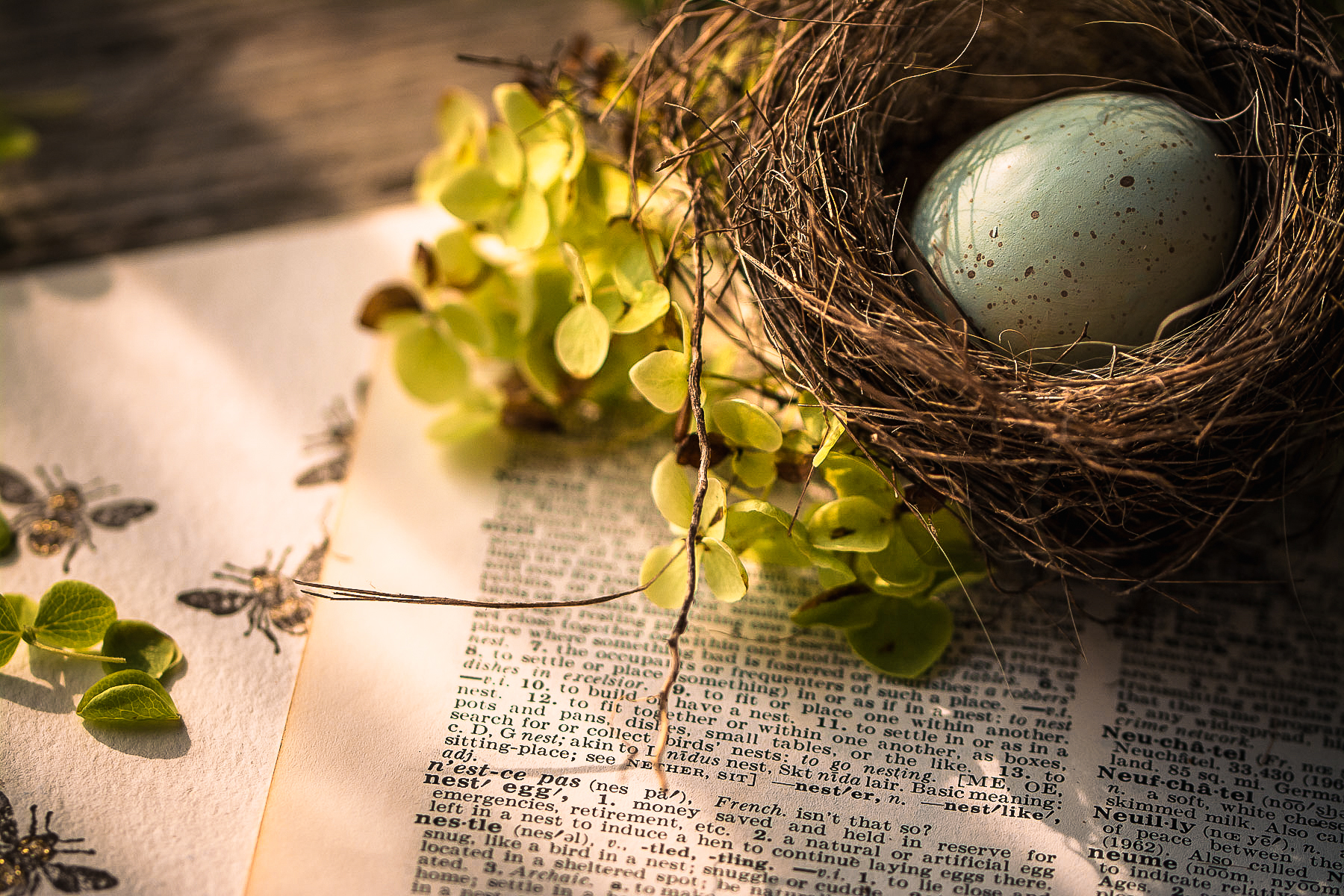Children’s Literature for Young Cultivators is a column devoted to good books for children. We’ll look at picture books, easy readers, children’s novels, and just plain good books for children of all ages, focusing primarily on stories and poetry. My goal is to provide good books for you to read with (or give to) the children you love, books that will shape their hearts, minds, and imaginations in Godward ways.
![]()
Life in this world appears to be an unmitigated tragedy, for no one gets out of here alive. But the resurrection of Jesus proclaims that such appearances are deceiving, that death is not the end of your story or mine, that our lives are not a tragedy but a comedy. We pass through death to life on the other side. In this Easter season, we are celebrating the resurrection of Our Lord Jesus Christ. As a corollary of that great and wondrous reality, we also celebrate the fact that our life in Christ is ultimately a comedy.
This comedic shape of life is the central grace of the Christian life. And it is grace, pure and simple. For we, like everyone else, have sinned and fallen short of the glory of God. We have eaten the forbidden fruit and tasted death. And not just once, long ago, in a far-off garden of glory, but here, now, this day, and every day, we fall short. We fall. But the God who raised Jesus from the dead also raises us. He takes us by the hand and bids us to get up and walk. Not because we deserve it but because He loves us, because it is His nature to shower grace and goodness on His beloved creatures.
And that’s precisely what grace is: goodness we don’t deserve.
As a mother, I want my children to know in their bones that this is who God is and how He interacts with us. I want them to inhabit the comedic shape of the Christian life and internalize its joyful, grace-filled form. But how do we go about such a task?
One way is to read them stories in which the characters succeed not through their own pluck and perseverance but by sheer dumb luck. Stories of this type are generally comedies, in both the literary and the colloquial senses of the word: they take a character through some kind of metaphorical death that ends in deliverance, not through his or her own efforts but through the workings of grace; and they’re often delightfully funny.
One of my favorite stories of this type is the classic picture book Caps for Sale by Esphyr Slobodkina. The subtitle is “A Tale of a Peddler, Some Monkeys and Their Monkey Business,” so you know right from the cover that this is going to be some kind of silly. And it is. Delightfully so.
The story opens with a peddler who sells caps, but “not like an ordinary peddler carrying his wares on his back. He carried them on top of his head.”[1] The illustration shows the peddler wearing a stack of caps, first his own checked cap, and on top of that, all the other caps in a rainbow of colors that reaches above the rooftops.
One day the peddler goes to a new town and tries to sell his caps, but no one wants them. He feels hungry, but he has no money for lunch, so he decides to take a walk in the country. After a while, he is tired as well as hungry, so he sits down under a tree to take a nap—with that tower of caps still stacked upon his head.
When he wakes up, he is refreshed and rested—but only his own checked cap is on his head. The rest of his caps are gone! He looks on the ground all around the tree, but he cannot find them. Then he looks up into the tree and sees a bunch of monkeys, each one wearing one of his caps.
The peddler shakes his finger at the monkeys and demands they give him back his caps. They just shake their fingers back at him.
This makes the peddler angry, and he shakes his fists at the monkeys and demands they give him back his caps. The monkeys only shake their fists back at him.
This makes the peddler even angrier, and he stomps his foot and demands that the monkeys give him back his caps. The monkeys only stomp their feet.
The furious peddler stomps both his feet and shouts at the monkeys to give him back his caps. The monkeys only stomp both their feet.
The peddler is so angry that he pulls off his checked cap, throws it on the ground, and begins to stomp away.
Well, you can guess what happens next, right?
All the monkeys pull off their caps and fling them to the ground.
The peddler picks them up, dusts them off, and returns to town to try to sell one of the caps stacked on his head, higher than the rooftops.
I will confess when I first read this story twenty years ago, I was a little appalled. It seemed to me to communicate that throwing a tantrum leads to a good outcome. But the more I read it, the more I came to see that what it actually communicates is the reality of grace. We don’t have to be good—in fact, we’re often not good—in order to receive goodness. For God “makes his sun rise on the evil and on the good, and sends rain on the just and on the unjust” (Matthew 6:45 ESV). The peddler certainly doesn’t deserve to get his caps back, and yet he does get them back, not through his own efforts (which were an abysmal failure) but through sheer dumb luck, which in children’s books is often a metaphor for grace.
And that is what I want my children to know—that even when they fail, God still loves them and still provides for them; that even when they’re not good, God still is.
Here are a few more picture books that help children inhabit the comedic reality of grace—the goodness we don’t deserve.
Rosie’s Walk by Pat Hutchins
In this book for very young children, Rosie the chicken goes for a walk—and is followed by a fox who wants to eat her. But through sheer dumb luck, Rosie makes it safely back to the chicken coop. The conflict between Rosie and the fox is told entirely through the colorful 1960’s illustrations. Young children will delight in Rosie’s escape, and in the fox’s comeuppance.
Kitten’s First Full Moon by Kevin Henkes
Kitten sees the full moon for the first time and thinks it is a bowl of milk in the sky—and she wants it. She tries to get it for herself and ends up bruised, pinched, wet, cold, scared, and hungry. Feeling sad and forlorn, she heads home, where she finds “a great big bowl of milk on the porch, just waiting for her.”[2] The simple black-and-white illustrations capture Kitten’s actions and emotions with clarity and charm.
Max Drives Away by Rosemary Wells
Max wants ice cream for breakfast, but his sister Ruby insists that he eat his cereal instead. Max runs away to Grandma’s house, where Grandma is just getting back from the grocery store—turns out she bought too much ice cream. After Max eats his pistachio-strawberry sundae, he rushes home to Ruby with ice cream for her. In addition to being a story about grace, this delightful board book is the simplest incarnation of the hero’s journey that I’ve ever encountered.
![]()
1 Esphyr Slobodkina, Caps for Sale: A Tale of a Peddler, Some Monkeys and Their Monkey Business (New York: HarperCollins, 1968).
2 Kevin Henkes, Kitten’s First Full Moon (New York: Greenwillow Books, 2004).
The featured image is courtesy of Julie Jablonski and is used with her kind permission for Cultivating.
K. C. Ireton is a multi-published author of both fiction and nonfiction books, including The Circle of Seasons: Meeting God in the Church Year and A Yellow Wood and Other Stories. She and her daughter, Jane, co-host Lantern Hill, a podcast for people who love books, children, and God. Visit kcireton.com to learn more about her work and download the first two chapters of her most recent book. Or visit her on Substack at kcireton.substack.com, where she publishes stories and liturgies.
Leave a Reply
A Field Guide to Cultivating ~ Essentials to Cultivating a Whole Life, Rooted in Christ, and Flourishing in Fellowship
Enjoy our gift to you as our Welcome to Cultivating! Discover the purpose of The Cultivating Project, and how you might find a "What, you too?" experience here with this fellowship of makers!


Add a comment
0 Comments